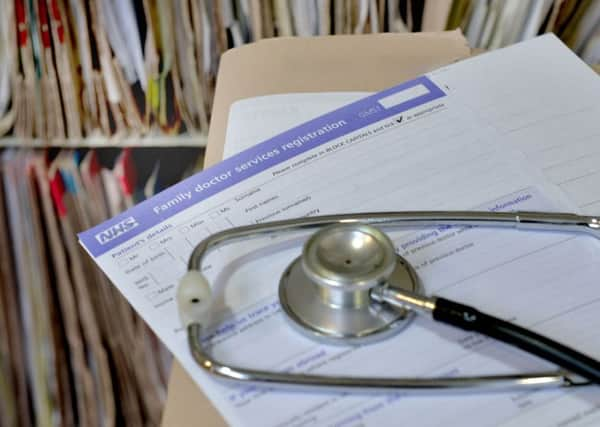Stark warning one in two will face cancer


Experts from the charity Cancer Research UK say there will “never be one single magic bullet” to cure all cancers.
They say age is the biggest risk factor for most forms of the disease, which previous predictions have estimated will affect around one in three people.
Advertisement
Hide AdAdvertisement
Hide AdAnd they warn the new prediction highlights the urgent need to bolster public health and NHS cancer services so they can cope with an ageing population and looming demands for better tests, treatments and earlier diagnosis.
Prevention must also play a role in efforts to reduce the impact of the disease, with early diagnosis a key part of treating the condition, said the charity.
Its chief executive Harpal Kumar said: “We need to plan ahead to make sure the NHS is fit to cope. If the NHS doesn’t act and invest now, we will face a crisis in the future - with outcomes from cancer going backwards.”
He said “better planning and innovative design of services” are needed, adding: “We also need to ensure the health service is adequately funded if we’re to deal effectively with the growing burden of cancer and offer all patients the best chance of long term survival.”
Advertisement
Hide AdAdvertisement
Hide AdThe UK’s cancer survival has doubled over the last 40 years and around half of patients now survive the disease for more than 10 years. But as more people benefit from improved healthcare and longer life expectancy, the number of cases will rise.
Figures reveal people born in 1930 had a lifetime risk of of cancer of just over one in three, but the risk has risen to one in two for those born in 1960. The lifetime cancer risk for women at 47.5 per cent is lower than that of men at 53.5 per cent, while the combined lifetime risk is 50.5 per cent.
Other lifestyle factors include smoking, obesity, diet, tanning and sunburn, lack of exercise and child-bearing patterns will also impact on cases of the illness.
Just over a quarter of all deaths are caused by cancer, so while one in two people will develop cancer at some point, it is still believed that around one in four people will die from cancer.
Advertisement
Hide AdAdvertisement
Hide AdProf Peter Sasieni, of Queen Mary University of London, who compiled the analysis, said: “Cancer is primarily a disease of old age, with more than 60 per cent of all cases diagnosed in people aged over 65. If people live long enough then most will get cancer at some point.”
Ellie Rose, of the charity Macmillan Cancer Support, said with cracks already beginning to show, “the NHS will soon be unable to cope with the huge increase in demand for services”.
The Department of Health said: “Cancer survival rates are now at their highest ever level, and we are on track to save an extra 12,000 lives this year.
“But cases of cancer are likely to rise with an ageing population - so we are focused on earlier diagnosis, improving care and tackling preventable cancer.”